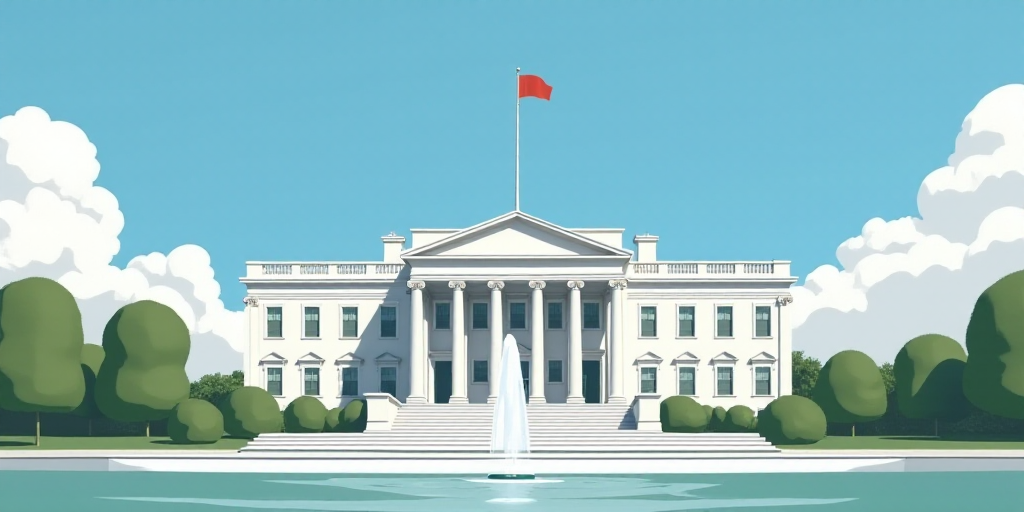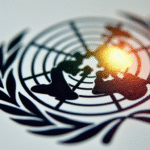Introduction
President Donald Trump’s return to the White House with a pledge to put America first has led long-standing allies to discover, often the hard way, that friendship has its limits. As the world witnesses more conflicts than at any time since World War II, the United States is no longer the sole dominant power.
Russia’s Actions and US-NATO Alliance
Russia, which has ignored Trump’s calls for a ceasefire in Ukraine, reportedly launched 17 drones that impacted Poland on Wednesday. Poland’s security is guaranteed by NATO, an alliance backed by the United States, and its president visited the White House the previous week.
Key Players: Russia and NATO
Russia’s actions highlight the complexities of maintaining alliances in a changing global landscape. NATO, a crucial security alliance for many European nations, relies on the United States for leadership and protection. Russia’s disregard for Trump’s ceasefire request and subsequent drone attacks on Poland, a NATO ally, strain this relationship.
Israel’s Airstrikes in Qatar and US-India Tensions
Meanwhile, Israel conducted airstrikes against Hamas militants in Qatar, home to a significant US airbase and an important non-NATO ally according to Washington. Israeli Prime Minister Benjamin Netanyahu, a close ally of Trump’s political base, ordered the attack despite Qatar’s efforts to court the US president, including a controversial luxury jet gift.
Key Players: Israel, Qatar, and the US
These actions have created tension between the United States and its allies. The US has long supported a two-state solution to the Israeli-Palestinian conflict, and Netanyahu’s decision to conduct airstrikes in Qatar may undermine this objective. Furthermore, the detention of South Korean workers by US immigration agents in Georgia, following Trump’s promise of mass deportations, has surprised the US ally and potentially jeopardized increased American investments.
US-India Tensions and Trade Sanctions
Trump has also intensified sanctions against India, a country the US has courted for decades through bipartisan leadership. These actions have caused indignation in India, a democracy the US views as a counterbalance to China’s growing influence.
Key Players: The US and India
Trump’s focus on Indian oil purchases from Russia, despite prioritizing diplomacy with President Putin, has strained relations. Moreover, Indian Prime Minister Narendra Modi’s minimization of US efforts for a ceasefire between India and Pakistan has further complicated matters.
Experts’ Perspectives on the Changing Landscape
Damian Murphy, a former Congressional advisor and senior vice president of security and international policy at the Center for American Progress, describes the overall context as one of weakness, chaos, and vanity. He adds that global leaders perceive US weakness and test the Trump administration’s resolve.
Key Players: Experts and Analysts
Paul Poast, a political scientist at the University of Chicago specializing in alliances, notes that both Russia and Israel perceive Trump as allowing certain actions to go unpunished. Netanyahu calculates that Trump will ultimately support Israel even when displeased, while Putin believes he can push boundaries as Trump still hopes to negotiate an agreement.
Conclusion: A New Era of US Alliances
Trump and his advisors argue that they are prioritizing fundamental US interests and reducing decades of unnecessary commitments, contrasting Biden’s pledge to prioritize alliances. Regarding South Korea and India, Trump’s team insists on holding partners to the same or higher standards. However, incidents like the Russian drone attacks and Israeli airstrikes in Qatar suggest that the world is witnessing more conflicts than at any time since World War II, with the US no longer the sole dominant power due to China’s rise and Russia’s growing assertiveness.
Key Questions and Answers
- Q: How have recent events affected US alliances? A: Recent incidents, such as Russia’s drone attacks on Poland and Israel’s airstrikes in Qatar, have strained US relationships with allies, as leaders perceive American weakness and test the Trump administration’s resolve.
- Q: What are the implications of increased US sanctions on India? A: The intensified sanctions have caused indignation in India, a crucial democratic counterbalance to China’s growing influence, and may jeopardize increased American investments.
- Q: How do experts view the current global landscape? A: Experts like Damian Murphy and Paul Poast describe the global context as one of weakness, chaos, and vanity, with leaders perceiving US weakness and testing the Trump administration’s resolve.






